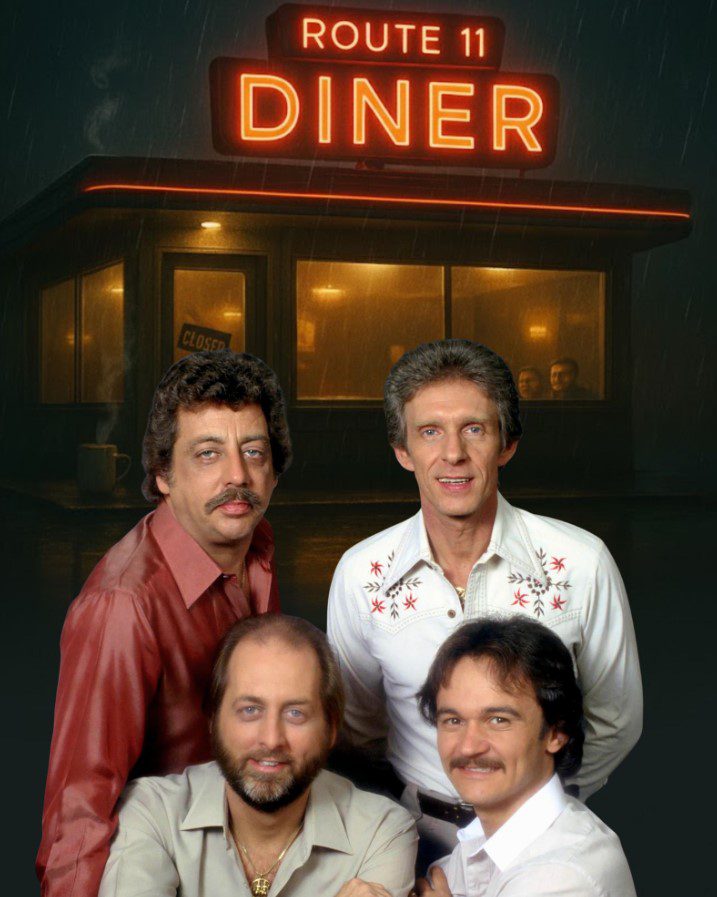
In 1972, a ferocious storm swept across Virginia, leaving destruction and uncertainty in its wake. Bridges collapsed under torrential rain, power outages plunged communities into darkness, and fear hung heavy in the air. The residents of small towns, particularly in and around Staunton, faced isolation as roads became impassable and communication lines went silent. The storm’s intensity was such that ordinary daily life halted, and the community’s morale teetered on the edge of despair. It was a night when nature’s fury collided with the quiet resilience of small-town America.
The Unexpected Arrival of The Statler Brothers
Amid the chaos, The Statler Brothers, returning from a nearby performance, made an impromptu stop at a modest diner just outside Staunton. The atmosphere inside was somber; patrons sat quietly, shielding themselves from the relentless rain outside while grappling with the emotional weight of the storm. The diner, dimly lit and isolated, mirrored the darkness that had settled over the town. It was in this unexpected moment that the legendary group would transform a bleak evening into a night of unforgettable connection and hope.
Music as a Beacon of Hope
Harold Reid, one of the Statler Brothers, approached the jukebox with a quiet determination. He inserted a coin and selected the song “Do You Remember These”. As the opening notes filled the diner, a subtle change began to take shape. Voices tentatively joined in, laughter replaced tense whispers, and a sense of collective warmth emerged. The power of music in times of adversity became undeniably evident. The song acted not merely as entertainment but as a catalyst for emotional revival, sparking hope where fear had dominated just moments before.
The Diner Transformed into a Sanctuary
By midnight, the small diner was alive with energy, laughter, and community spirit. The storm raged outside, but within those walls, the town found light, not from electricity, but from unity. Strangers became companions, hearts healed through shared song, and the weight of isolation lifted. Harold Reid later reflected, “We didn’t plan to sing that night… but maybe that’s when the song found its true purpose.” This spontaneous act highlighted the profound role that music can play in fostering resilience and emotional recovery during crises.
A Lasting Legacy of Inspiration
The events of that night cemented the Statler Brothers’ song as more than a melody—it became a symbol of hope that breathed life back into a town shaken by nature. One diner patron succinctly captured the sentiment: “Music didn’t fix our bridges, but it sure fixed our hearts.” The story continues to inspire generations, reminding us that even in the darkest hours, the right combination of talent, empathy, and timing can revive spirits and restore communal harmony. The Statler Brothers’ impact extended beyond entertainment, leaving a lasting imprint on Virginia’s history and the enduring power of music in uniting communities.